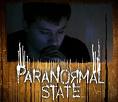 An article on LiveScience talks about research being done on speech pathology and how we can filter out the would-be serial killers from those who are more or less petty thieves. By using a “Psychopathy Checklist”, researchers ask a series of questions and then analyze the participants’ speech pattern through computer software.
An article on LiveScience talks about research being done on speech pathology and how we can filter out the would-be serial killers from those who are more or less petty thieves. By using a “Psychopathy Checklist”, researchers ask a series of questions and then analyze the participants’ speech pattern through computer software.
By some form of technological-wizardry the data is compiled and given a score.
The researchers interviewed 52 convicted murderers, 14 of them ranked as psychopaths according to the Psychopathy Checklist-Revised, a 20-item assessment, and asked them to describe their crimes in detail. Using computer programs to analyze what the men said, the researchers found that those with psychopathic scores showed a lack of emotion, spoke in terms of cause-and-effect when describing their crimes, and focused their attention on basic needs, such as food, drink and money.
The software factors in a series of algorithms to categorize possible psychopaths from those who are just criminals. By analyzing words such as the “uhs” and “ums”, researchers can examine the emotional content of the subject’s speech.
If successful, this new way of weeding-out psychopaths could be a modern way of fighting crime in a more proactive manner. Wait. What am I saying?
This is GhostTheory.com! Shouldn’t I be more paranoid? Oh wait…needed some coffee.
*sips* Ahhh!
So although this tool and research sounds promising, it won’t do us an ounce of justice. Something like this would only end up in the hands of the real psychopaths. Those Wall Street fat cats and their slick suits. I can already see it. Pharmaceutical companies investing hundreds of millions of dollars into such technology to directly target those who express an ounce of derangement. How so? Simply by “plugging” it into social-network sites like FaceBook or Twitter. They can scan millions of people, through large server farms and find their intended target.
Or far worse; we can have a “Minority Report” situation here in which law enforcement is constantly sniffing people’s data, hunting for psychopaths. With a possible boisterous free-thinking radical arrested for having said way too much.
Wake up and *sips* smell the coffee people!
Full source: LiveScience
NEW YORK — Psychopaths are known to be wily and manipulative, but even so, they unconsciously betray themselves, according to scientists who have looked for patterns in convicted murderers’ speech as they described their crimes.
The researchers interviewed 52 convicted murderers, 14 of them ranked as psychopaths according to the Psychopathy Checklist-Revised, a 20-item assessment, and asked them to describe their crimes in detail. Using computer programs to analyze what the men said, the researchers found that those with psychopathic scores showed a lack of emotion, spoke in terms of cause-and-effect when describing their crimes, and focused their attention on basic needs, such as food, drink and money.
While we all have conscious control over some words we use, particularly nouns and verbs, this is not the case for the majority of the words we use, including little, functional words like “to” and “the” or the tense we use for our verbs, according to Jeffrey Hancock, the lead researcher and an associate professor in communications at Cornell University, who discussed the work on Monday (Oct. 17) in Midtown Manhattan at Cornell’s ILR Conference Center.
“The beautiful thing about them is they are unconsciously produced,” Hancock said.
These unconscious actions can reveal the psychological dynamics in a speaker’s mind even though he or she is unaware of it, Hancock said.
What it means to be a psychopath
Psychopaths make up about 1 percent of the general population and as much as 25 percent of male offenders in federal correctional settings, according to the researchers. Psychopaths are typically profoundly selfish and lack emotion. “In lay terms, psychopaths seem to have little or no ‘conscience,’” write the researchers in a study published online in the journal Legal and Criminological Psychology.
Psychopaths are also known for being cunning and manipulative, and they make for perilous interview subjects, according to Michael Woodworth, one of the authors and a psychologist who studies psychopathy at the University of British Columbia, who joined the discussion by phone.
“It is unbelievable,” Woodworth said. “You can spend two or three hours and come out feeling like you are hypnotized.”
While there are reasons to suspect that psychopaths’ speech patterns might have distinctive characteristics, there has been little study of it, the team writes.
How words give them away
To examine the emotional content of the murderers’ speech, Hancock and his colleagues looked at a number of factors, including how frequently they described their crimes using the past tense. The use of the past tense can be an indicator of psychological detachment, and the researchers found that the psychopaths used it more than the present tense when compared with the nonpsychopaths. They also found more dysfluencies — the “uhs” and “ums” that interrupt speech — among psychopaths. Nearly universal in speech, dysfluencies indicate that the speaker needs some time to think about what they are saying.
With regard to psychopaths, “We think the ‘uhs’ and ‘ums’ are about putting the mask of sanity on,” Hancock told LiveScience.
Psychopaths appear to view the world and others instrumentally, as theirs for the taking, the team, which also included Stephen Porter from the University of British Columbia, wrote.
As they expected, the psychopaths’ language contained more words known as subordinating conjunctions. These words, including “because” and “so that,” are associated with cause-and-effect statements.
“This pattern suggested that psychopaths were more likely to view the crime as the logical outcome of a plan (something that ‘had’ to be done to achieve a goal),” the authors write.
And finally, while most of us respond to higher-level needs, such as family, religion or spirituality, and self-esteem, psychopaths remain occupied with those needs associated with a more basic existence.
Their analysis revealed that psychopaths used about twice as many words related to basic physiological needs and self-preservation, including eating, drinking and monetary resources than the nonpsychopaths, they write.
By comparison, the nonpsychopathic murderers talked more about spirituality and religion and family, reflecting what nonpsychopathic people would think about when they just committed a murder, Hancock said.
The researchers are interested in analyzing what people write on Facebook or in other social media, since our unconscious mind also holds sway over what we write. By analyzing stories written by students from Cornell and the University of British Columbia, and looking at how the text people generate using social media relates to scores on the Self-Report Psychopathy scale. Unlike the checklist, which is based on an extensive review of the case file and an interview, the self report is completed by the person in question.
This sort of tool could be very useful for law enforcement investigations, such as in the case of the Long Island serial killer, who is being sought for the murders of at least four prostitutes and possibly others, since this killer used the online classified site Craigslist to contact victims, according to Hancock.
Text analysis software could be used to conduct a “first pass,” focusing the work for human investigators, he said. “A lot of time analysts tell you they feel they are drinking from a fire hose.”
Knowing a suspect is a psychopath can affect how law enforcement conducts investigations and interrogations, Hancock said.
10 comments



